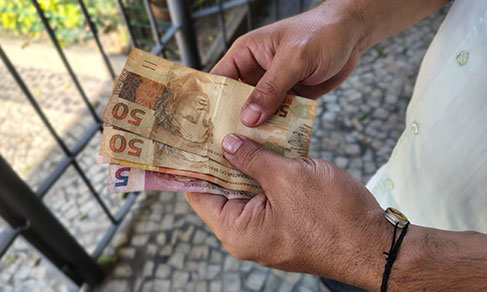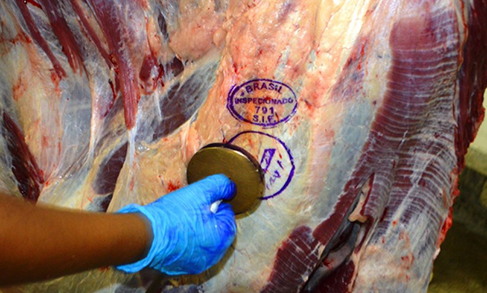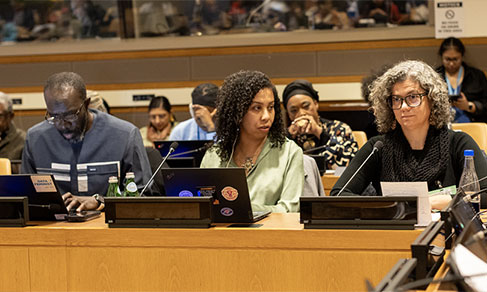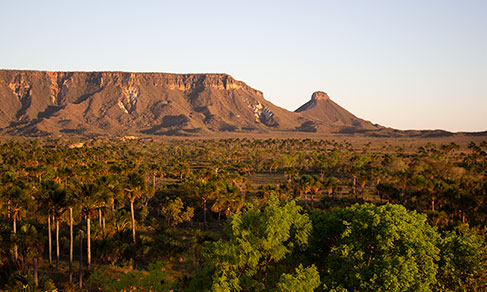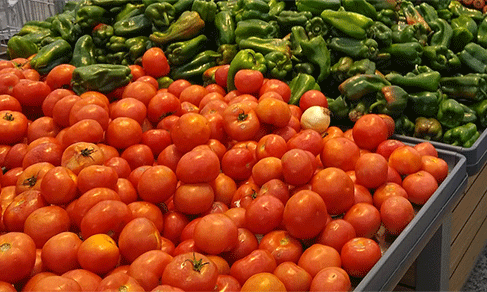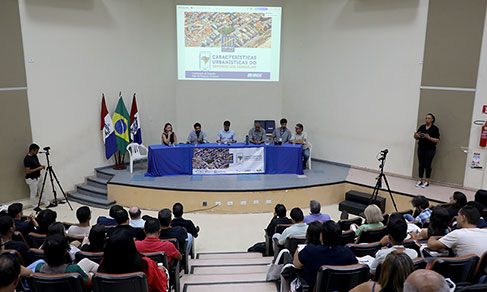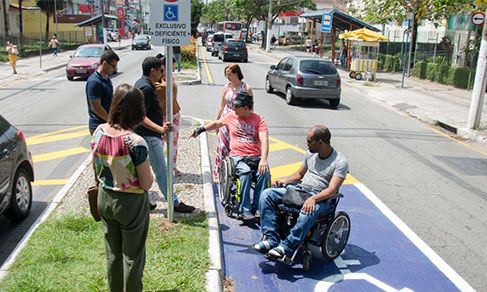Organic family farming in Rio de Janeiro highlights healthy food
December 04, 2017 09h00 AM | Last Updated: December 07, 2017 12h06 PM
The 2017 Census of Agriculture is already in its third month of collection. The survey will depict a portrait of agricultural establishments that, in the case of the state of Rio de Janeiro, are predominantly producers of temporary crops, cattle breeding and horticulture.
Livestock and cane farming are the strongest in the north of the state, where the area harvested from sugarcane reached 48 thousand hectares in 2016, according to the Municipal Agricultural Survey, as well as 660 thousand cattle head, according to the Municipal Livestock Survey (both by the IBGE). Horticulture, on the other hand, has great incidence, mainly in the mountain area of Rio, where the weather is cooler and rainy.
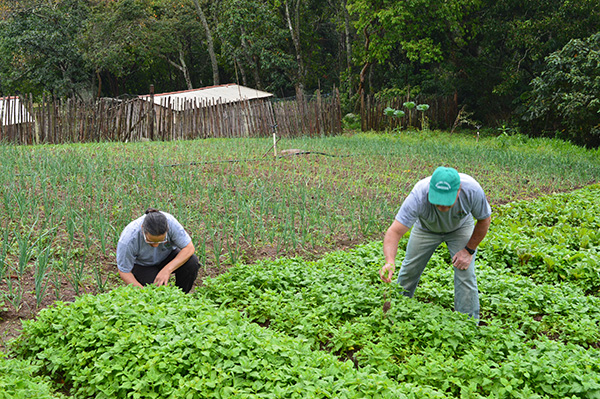
Small farmers are the ones who usually grow a wide variety of crops, both for subsistence and for trade in fairs. According to the last Census of Agriculture, in 2006, horticulture production, mainly tomato and lettuce, was quite big in the set of cities of Nova Friburgo, Teresópolis, Petrópolis, Bom Jardim, Cantagalo, Carmo, Cordeiro and Duas Barras, all of them in the mountain range area. The production amounted to almost 15 thousand tons. This type of agriculture continues to grow in Rio, despite the tragedy that left, in January 2011, thousands of homeless people and millions at a loss in local cities.
FSuch was the case of the family of farmers Manoel Luiz Ventura and Ilza de Souza Ventura, who lost almost everything in the 2011 rainfall: vegetable gardening, farming, pig raising, chicken and goat raising. They have lived for 32 years in the Boa Ventura Site, which occupies 10 hectares within the Fazenda Alpina settlement, in Santa Rita, in the municipality of Teresópolis. The settlement now belongs to 92 families: the Ventura's managed to rebuild their business after the tragedy thanks to the support given by the Rio Rural Emergency Program, and they have been getting advisory by the Rio de Janeiro Technical Assistance and Rural Extension Company (Emater-Rio).
In 2011, the couple needed to get shelter at Ilza's brother farm in Serra Capim, and were only able to return to the settlement in 2012. Other people, however, were not so lucky, as some areas of the settlement were considered unsafe.
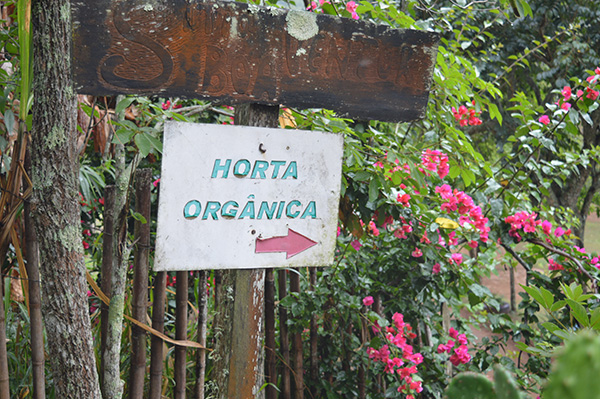
Family farming and the issue of the new generations
Since the last Census of Agriculture, the IBGE counts family establishments, according to Law no. 11,326, of July 24 of 2006. The farmer needs to meet a set of criteria to be included within the legal definition of family agriculture, which allows him/her to access public policies created for the sector - such as the National Program for Strengthening Family Agriculture (PRONAF), which is already listed in the Financing item in the 2017 Census of Agriculture questionnaire.
Data from 2006 showed that in Brazil there were 4,367,902 family farming establishments, which account for 84.4% of the total agricultural and livestock production, but occupy only 24.3% of the land.
Mr. Ventura, 60, works as a farmer since he was 15 and has two children with Ilza. The couple's children, now aged 32 and 35, used to work as farmers, but recently have spent more time in the city. One of them, Henrique, goes only twice a week to his parents' place. Mr. Ventura considers the kind of work they do heavy for the couple, who does not have any employees and produce, among many others: six types of lettuce and two of broccoli, cabbage, arugula, rosemary, mint, lemongrass, sage, thyme, basil, kale, fruit and hen eggs. The family also keeps hold of pea and corn native seeds free from industrial processes, handed down from generation to generation. Ilza, however, does not believe much in the continuity of agriculture in the family. "Young people born on the farm are giving it up. They see our difficulties, and the income is very little," she complains.
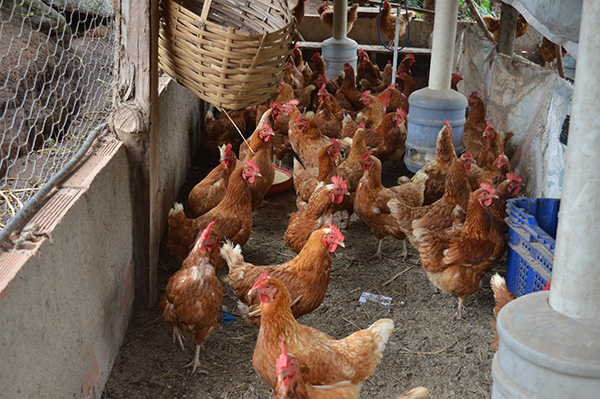
“I was intoxicated”
Since 2012, the family only grows organic porducts in their garden. One of the reasons for that was the severe disease Luiz had when he was only 23 due to the use f DDT (standing for dichlorodiphenyltrichloroethane), one of the first insecticides sold: “"I used to pump and Ilza, to pulverize. I started to have shortness of breath." Intoxication later affected the kidneys and caused a severe urinary tract infection, and the farmer had to leave the farm in the months he was hospitalized."After that, organic food, without poison, healed me," he says. "I guess if I had continued [with the use of pesticides], I would have died"
The family was advised by the agronomist Monique Lopes, from Emater - Rio, to grow their garden without using pesticides (name assigned to pesticides). Monique explains that small animal farming in the site is complementary to organic agriculture, as the pigs, hens and kids of the Ventura family generate fertilizer for the soil. Their farm production took 18 months to get an official certification of organic food.
Solidarity fairs are fundamental for small producers
One of the main problems for family farmers is the logistics of their production transportation, since the properties are generally difficult to reach and farmers do not always have their own vehicles. Luiz only managed to buy a car after 40 years of farming. He had a debt that he managed to renegotiate, and only then did he have access to PRONAF. Before that, the farm used to lose almost 80% of its production, and even today they claim that they still lose about 40%.
Luiz has a relationship of trust with the buyers at the fair, and is commited to their health. Often, the farmer takes medicinal herbs to help people whose relatives are sick, or harvests organic beetroots, cabbage and parsley before the season, especially for a customer who needs it. "I'm not worried about money. I do not count money at the fair. When I get home, I'll see if there's anything left for me. It hardly does," comments Luiz. In spite of this, he declares to take pleasure in disseminating organic food: "Wherever I go, I leave a seed. And wherever I leave it, they bear much fruit."
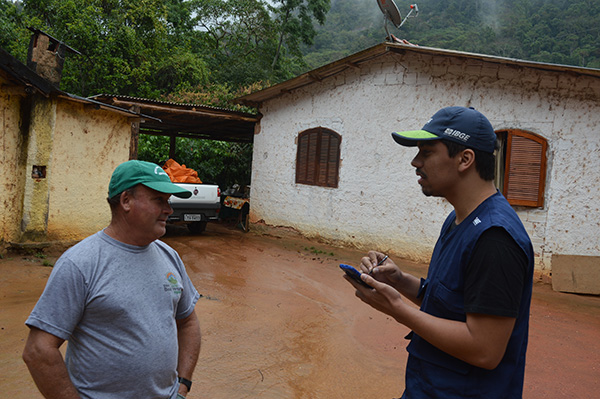
Women's fight in family farming
Ilza comes from the third generation of farmers of her family, coming from Serra do Capim, and learned how to read and write at home. In addition to working in the fields, he still cooks and does household chores. "We do not choose a day or a specific time o work; there is no holiday," explains the working mother. In the 2006 Census of Agriculture, the majority of workers in family agriculture in Brazil were still men (2/3), but the number of women employed was also significant: 4.1 million women (1/3 of those employed). In the managment of establishments, family farmers had a higher proportion of women compared to non-family farmers: more than 600,000 family farmers (13.7%) were headed by women in 2006, while in non-family farms, they did not reach 7%.
Farmer Ilza, sometimes, had to work out of the farm as well, to make a living. She says it occurred twice: first when she was about 20 years old, and then at 40, when she had to work in the city as a maid while her husband farmed. She hopes that family farming gains a greater visibility and, as a result, that people understand the value of such hard work: "We, the small producers, tend to be forgotten," she declares.
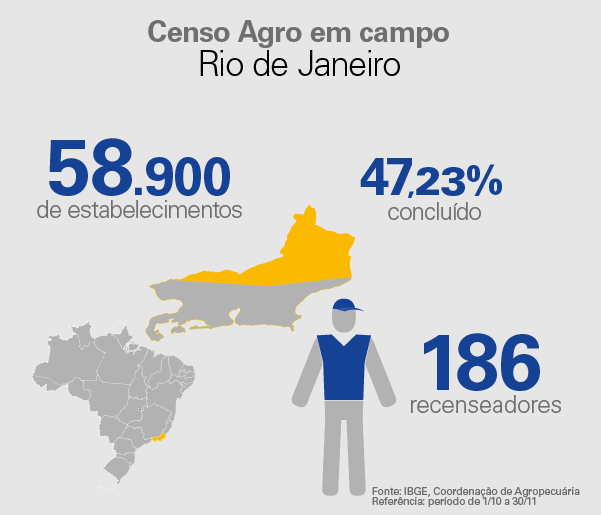
Text and pictures: Camille Perissé
Art: Helena Pontes and Valberto Alves
Infograph: Pedro Vidal


